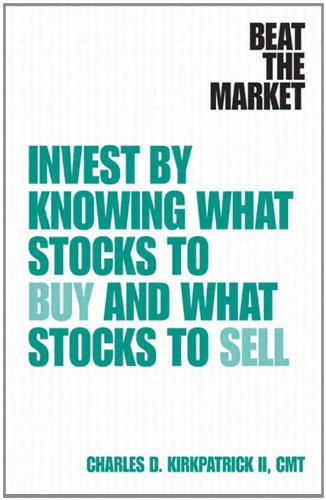Over the past 50 years, Charles Kirkpatrick has earned a reputation for being one of the most respected names in trading. Yet for a long time, his ideas were completely at odds with the theory that stock markets are efficient. It was only through dogged determination that he showed how emotions like fear and greed influence markets - and how they can be exploited by savvy investors.

Kirkpatrick’s path to prominence began in the late 1960s when he worked with an academic called Robert Levy. Their research showed how relative price strength could be used successfully to pick shares.
But Levy’s findings didn’t go down well with everyone. He was ridiculed by efficient market theorists who rejected the idea that markets could be irrational. Kirkpatrick didn’t relent. He stuck with Levy’s ideas and in 1982 started tracking them in real time on a weekly basis. A full 17½ years later, he wrote about the experience in an award-winning paper that laid out how brilliantly a strategy based on price momentum had performed.
Kirkpatrick’s career as a prolific writer and educator led to numerous books spanning technical and fundamental analysis through to human and market behaviour. Ten years ago he published Beat the Market: Invest by Knowing What Stocks to Buy and What Stocks to Sell, and dedicated it to “Robert Levy, a relative pioneer”.

Here are some of the main points that Kirkpatrick makes in his book:
#1. Be a DIY investor
“You have to make investment decisions for yourself because the investment management business makes more money from you than you do on your investments with them.”
#2. Watch out for emotions and biases
“Whether it’s stupidity, gullibility, naivete or inattention to the peculiarities of human interaction, common sense often falls victim to popularity and hype.”
#3. Volatility isn’t risk (it can be desirable)
“As a practical investor desiring to profit from a rising trend, you need to be aware that risk is best equated with the possibility of capital loss and not simply with volatility.”
#4. Don’t try to guess the future
“Most professionals with considerably more timely and accurate information than you cannot predict the markets. You don’t stand a chance.”
#5. Reaction is better than prediction
“Reaction takes place in three steps: the setup, the trigger and…





